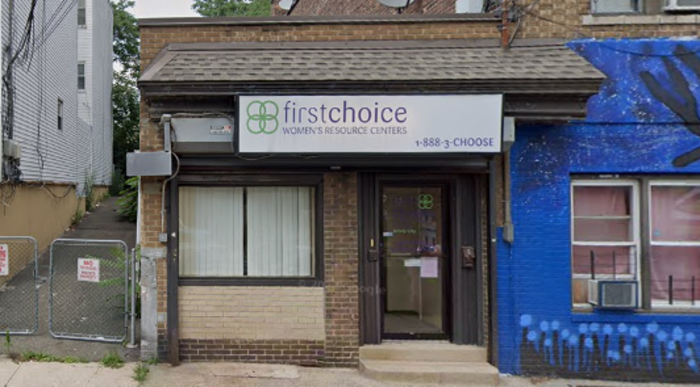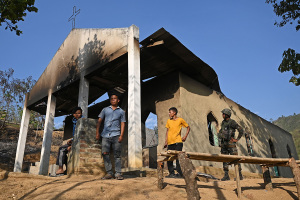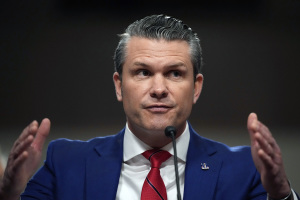Pro-life pregnancy centers ask Supreme Court to stop subpoena demanding donor info

A network of pro-life pregnancy resource centers in New Jersey is asking the U.S. Supreme Court to stop a subpoena that would force it to disclose donor information.
First Choice Women's Resource Centers asked the high court in a petition filed late last month to stop New Jersey Attorney General Matthew Platkin from getting "sensitive internal information" via a subpoena.
According to the petition, such information would include "First Choice's donors, their gifts, and communications with them; every solicitation and advertisement by First Choice on any web, social, print, or broadcast media; the identities and personal information of First Choice's staff, volunteers, directors, and board members; and its associations with other faith-based, pro-life, nonprofits."
"The Attorney General's broad, unlawful Subpoena and the state-court enforcement proceeding are themselves a chill on First Choice's speech, religion, and associational freedoms," stated the petition.
"And in an environment in which pregnancy centers 'have been subjected to bomb threats, protests, stalking, and physical violence' … the Attorney General's sweeping demands threaten not just the freedoms but the safety and support of First Choice's donors, volunteers, and associates."
Alliance Defending Freedom Senior Counsel Lincoln Wilson, whose organization represents First Choice, criticized a lower court ruling against the pregnancy care center network.
"In this case, New Jersey's attorney general targeted First Choice Women's Resource Centers — a ministry that provides free ultrasounds, STD testing, baby clothes, and more to its community — based on its pro-life views," said Wilson in a statement on Feb. 29.
"The district court deprived First Choice of its right to a decision on its constitutional claims in federal court. Now we are urging the Supreme Court to step in and provide relief requiring the district court to decide this case and to resolve the related conflict on the question in the lower courts."
In November 2023, Platkin subpoenaed First Choice for various records, including donor lists and private correspondence, as part of an investigation into whether the pro-life network was in violation of the New Jersey Consumer Fraud Act.
Last December, before the deadline for the subpoena was reached, First Choice filed a complaint against the attorney general, arguing that the subpoena was too broad and unconstitutional.
In January, U.S. District Judge Michael A. Shipp ruled against the network, concluding that the complaint was "not ripe" and that the court "lacks subject-matter jurisdiction" in the case.
"Plaintiffs claims related to the Subpoena's enforceability in this matter would ripen only after the contingent future event that forms the basis of its alleged injury occurs," wrote Shipp.
"Because this Court cannot yet know whether the state court tasked by the New Jersey state legislature with overseeing subpoena enforcement proceedings like this will, in fact, enforce the Subpoena in its current form, this matter is not ripe for resolution because no actual or imminent injury has occurred."
A spokesperson for Platkin's office said in a statement to The Washington Times that "our subpoena does not violate their rights, and we are confident that the courts will agree."
"Under longstanding New Jersey law, nonprofits operating in our state cannot engage in deception about the work they do," stated the attorney general spokesperson.
"New Jersey law provides the Attorney General clear authority to investigate nonprofits that may be violating those requirements. By filing this lawsuit, First Choice is refusing to even answer questions about its candor and its operations."
In the complaint, attorneys for First Choice accused Platkin of aligning with the nation's largest abortion provider Planned Parenhtood and treating their "comparable secular activity ... more favorably than First Choice's religious activity." The complaint alleges that Platkin has refused to subpoena Planned Parenthood "despite their well-known failures in data security and misleading statements on their websites."
Platkin was one of 16 Democrat attorneys general who signed a letter last year accusing pro-life pregnancy centers of spreading "misinformation and harm" by "misleading consumers and delaying access to critical, time-sensitive reproductive healthcare."
As Brittany Smith of Save the Storks wrote in 2020, many misunderstand that there are two types of pro-life pregnancy clinics: "non-medical" and "medical."
Non-medical pregnancy centers offer pregnancy tests, counseling, parenting classes and "practical instruction to parents," she wrote. Most of those centers offer supplies like diapers, baby clothes, and formula at no cost to families.
Meanwhile, medical pregnancy resource centers employ registered nurses or ultrasound technicians trained to perform sonograms under the guidance of a licensed medical director.
According to the pro-life research organization Charlotte Lozier Institute, over 2,700 pro-life pregnancy centers in all 50 states served over 2 million men, women and youth in 2019.





























